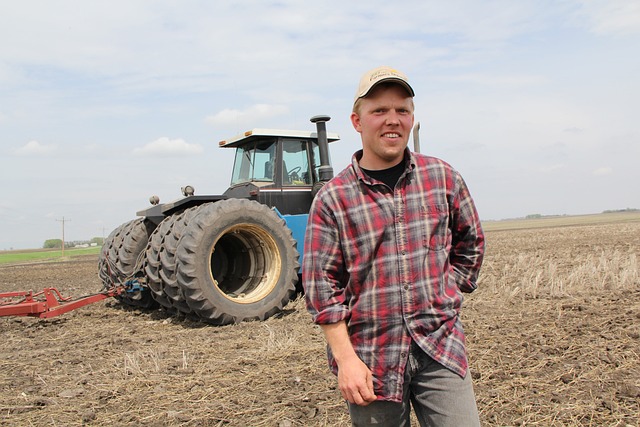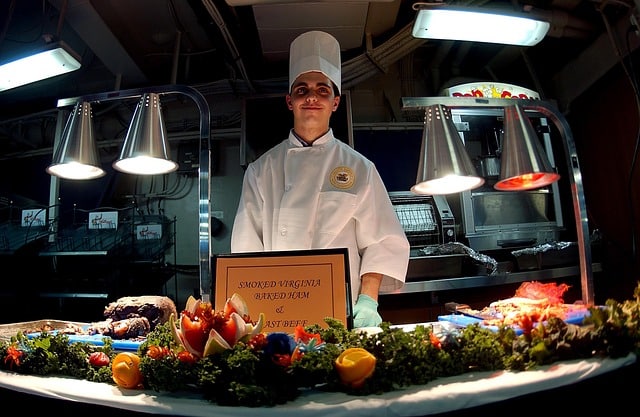Introduction – Food Sustainability Has Positive Feedforward Effects
Food is one of the big carbon emitters, a recurring theme at ShrinkThatFootprint. Food sustainability promotes environmental and public health, as well as food systems that are resilient, healthy, and equitable. Sustainable food jobs are created in the food production, processing, and distribution sectors.

Food sustainability promotes environmental and public health. By ensuring that our food systems are resilient, healthy, and equitable, we can create jobs in the food production, processing, and distribution sectors. This job creation is crucial to ensuring that everyone has access to a nutritious diet. Protecting natural resources and biodiversity also promote sustainable agriculture practices, which help to reduce food waste and mitigate climate change impacts on agriculture.
In addition, various roles within the food industry focus on sustainability, including chefs and restaurant managers who prioritize local and organic ingredients, food waste reduction specialists, and farm-to-table distributors. If sustainable food is your passion, consider exploring job opportunities in this growing field and being part of the solution to ensuring a future with healthy and plentiful food for all.
Data Support Sustainable Food Job Growth
Official statistics on job growth within this specific niche are not readily available. We will have to make educated predictions based on trends in related areas, including sustainable agriculture, food technology, environmental science, and the general shift towards sustainable business practices.
Globally, the food sector accounts for approximately 26% of global greenhouse gas emissions, making it a crucial area for sustainable interventions. We also know that farming, which is the number 1 sustainable food job on our list, has an outstanding concentration of green talent from a LinkedIn report.
Our research reveals that this is starting to happen, as oil and gas (a subset of fossil fuels) has a median national green talent concentration of 21%. By comparison, farming (42.9%) and construction (27.4%) are higher, emblematic of a trend in which we see the most resource-intensive industries have the highest concentration of green skills.
LinkedIn Green Skills Report 2023
Moreover, the Bureau of Labor and Statistics compiled data to show that jobs for agricultural and food scientists are projected to grow by 6% from 2019 to 2029, faster than the average for all occupations. Based on the
7 Sustainable Food Jobs
Depending on your interests and skills, there are several careers in sustainable food production, processing, and distribution that you may find rewarding. Here are just a few examples:
1. Farmer
Farmers are on the front lines of sustainable food production. They may work independently or be a part of a larger organization, such as farmers’ markets or community-supported agriculture (CSA) programs. Farmers can use sustainable agricultural practices like crop rotation and cover cropping to create food sustainability. This will help preserve the environment. Farmers must manage their land and resources wisely to produce healthy, high-quality food while protecting natural ecosystems.
2. Chef Or Restaurant Manager
Working in the food industry can also be a great way to promote sustainable food practices. Chefs and restaurant managers play an important role in promoting sustainable food systems by purchasing local and organic ingredients for their menus whenever possible. These individuals are critical links in the supply chain between producers and consumers, helping to educate the public about how their choices affect the health of our environment and communities.
3. Food Waste Specialist
Food waste contributes substantially to carbon emissions at both production and consumer stages. Food waste specialists focus on reducing the amount of food wasted every year through all stages of production, processing, distribution, consumption, and disposal.
This role involves working with farmers, distributors, retailers, consumers, and other stakeholders to identify ways to minimize food waste at each point in the supply chain. Some strategies you can implement to reduce food waste include minimizing overproduction, improving harvesting and storage techniques, enhancing product handling, packaging improvements, and consumer education.
4. Farm-To-Table Distributor:
Working as a farm-to-table distributor allows you to connect local farmers with consumers interested in buying fresh, healthy foods directly from their source. This may involve managing market stands or pop-up markets at community events, coordinating pick-up sites for CSA members, or delivering produce door-to-door on a bicycle. By reducing the distance our food travels from farm to fork, we can help decrease greenhouse gas emissions related to food production and transportation.
5. Agricultural Researcher
Agricultural researchers work to improve crop yields, enhance food security and ensure the long-term health of farming communities. They research improved farming systems, the use of natural resources, and biodiversity conservation. This may involve conducting field trials with farmers, evaluating new products, or analyzing soil samples for improving fertilizer applications.
6. Food Policy Campaigner
Food policy campaigners advocate for policies that support sustainable agriculture and healthy food access in their local community, state, or country. These individuals can also play a role in influencing public opinion on these issues by raising awareness through writing blog posts, speaking at public events, or organizing workshops or training sessions for consumers and producers alike. They may be employed by non-profit organizations, government agencies, or the private sector.
7. Nutrition Educator
Nutrition educators can play an important role in promoting food sustainability by educating consumers about the benefits of healthy eating and sustainable agriculture. They may work with schoolchildren to teach them how their dietary choices affect the environment, or they may lead workshops or cooking classes at local community centers. By sharing their knowledge and expertise on these topics, nutrition educators are helping people make more informed decisions about their food intake and overall health.

Is Sustainability A Good Career Choice?
The question of whether sustainability is a good career choice depends on what your values and goals are. However, there is no denying that the demand for sustainable solutions in industries ranging from energy to fashion is rapidly increasing. Sustainability professionals work to find ways to reduce resource consumption and minimize negative environmental impacts while still meeting business goals and satisfying consumer demand.
It can be challenging, as it requires individuals to think creatively and outside the box to find innovative solutions. And with global issues like climate change only becoming more pressing, the need for individuals in this field will only continue to grow. So if you are passionate about protecting our planet and finding ways to live sustainably, choosing a career in sustainability may be the perfect fit.
What Qualifications Do I Need To Work In Sustainability?
To work in sustainability, one must have a deep understanding and passion for environmental protection and conservation. Many positions in the field require at least a bachelor’s degree in a related field, such as environmental science or sustainability studies. In addition to formal education, hands-on experience can also be valuable through internships or volunteer work.
Employers often look for candidates with strong communication and problem-solving skills and an awareness of current sustainability challenges and solutions. It is also helpful to know legislation and policy related to sustainability efforts. While specific qualifications may vary depending on the job, these are some important pieces employers look for in candidates interested in working in sustainability.
In Summary
There are many different career paths that you can pursue if you want to promote food sustainability. Some options include becoming a farmer, working as a chef or restaurant manager, managing a farm-to-table distribution business, conducting agricultural research, advocating for food policy changes, educating people about nutrition, and many others. Each of these roles will require different skills and expertise, so it is important to research the various career options before deciding which path is right for you. Regardless of your chosen role, having a passion for food sustainability and a commitment to making positive changes in this area will be essential in helping you succeed in your chosen career path.
